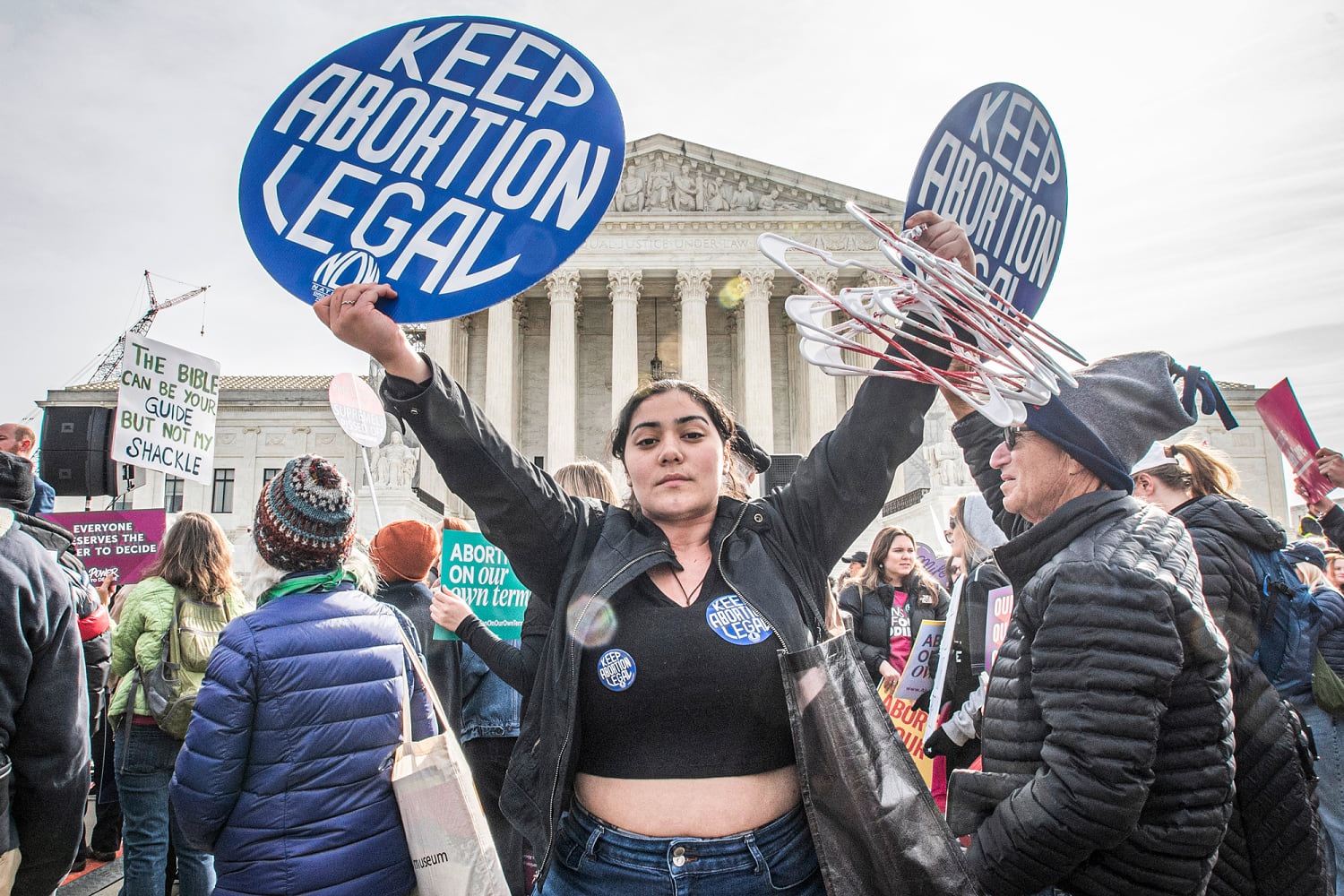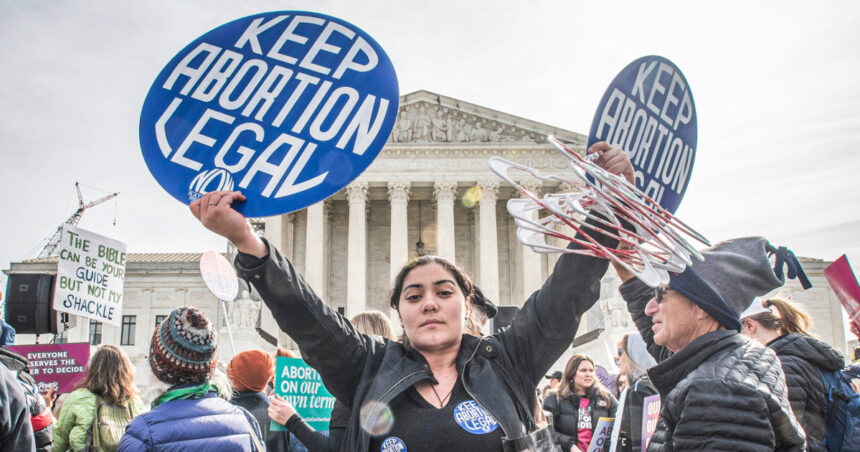
JACKSONVILLE, Florida — Abortion clinics in Florida say they have been trying to see as many patients as possible before the state’s ban on abortions after six weeks takes effect on Wednesday.
In Jacksonville, a clinic called A Woman’s Choice provided around double its usual volume of abortions on Monday, according to Amber Gavin, its vice president of advocacy and operations.
The waiting room has been so crowded that patients’ companions were asked to stay in their cars or drop people off to free up space, Gavin said. Parking spaces were also scarce, prompting some patients to park off-site and walk to the clinic.
“Tomorrow is going to look very different,” Kelly Flynn, CEO of A Woman’s Choice, said on Tuesday. “A lot of patients will come in for the consult and be told that we can’t see them.”
Florida’s new restriction, which takes effect just after midnight on Wednesday, makes it a felony to perform or actively participate in an abortion after six weeks of pregnancy. Because gestation is counted from a woman’s last period, that leaves her around two weeks after a missed period to realize she is pregnant and complete the process to terminate the pregnancy, which in Florida requires two in-person visits to a clinic, 24 hours apart.
The ban has exceptions for rape, incest and human trafficking up to 15 weeks of pregnancy. Abortions can also be provided after six weeks if there’s a fatal fetal abnormality, a woman’s life is at stake or she faces “substantial and irreversible” physical impairment.
Candace Dye, the owner of A Woman’s World Medical Center in Fort Pierce, Florida, said phones were ringing off the hook last week as patients tried to book appointments.
“We usually only do like 50, 60 patients in one month,” Dye said. “This month is going to be over 100.”
The waiting room at A Hialeah Woman’s Care Center in Miami-Dade County was also full on Tuesday. The abortion clinic, which serves a working-class community with a sizable immigrant population, had to turn away some patients on Monday.
Abortion providers said many patients are confused about the state’s restrictions and timelines.
Dr. Marian Sampson, a provider at Planned Parenthood of Southwest and Central Florida, said some patients were shocked that Monday was the last day to initiate the abortion process for those who are more than six weeks pregnant, given Florida’s two-appointment requirement. (Come Wednesday, patients will need to show up to clinics a few days before the six-week mark to be eligible.)
Other patients, she said, were not aware that Florida had banned abortion after 15 weeks of pregnancy in 2022, or thought that the new law would outlaw abortion entirely and that “traveling out of state will lead to possible criminal repercussions.”
That is not the case. Given that some abortions still permissible in Florida, clinics said they plan to keep operating for now.
“It’s just going to be a day-by-day learning process in how we can reframe how we’re doing the work,” Flynn said. “We are not going to close. We’re going to stay open and we’re going to fight our way through this.”
Patients who are more than six weeks pregnant will be given information about how to obtain abortions in a different state, said Dr. Daniel Sacks, a provider at Presidential Women’s Center in West Palm Beach.
Sacks said his approach has been to make patients aware of the deadline without rushing them.
“We don’t want to push anybody to make a decision that they’re not ready to make,” he said. “It’s presented as, ‘You’re X number of weeks. Should you decide you want to terminate, you would have to do so by the 30th of this month or go out of state.’”
Gov. Ron DeSantis signed Florida’s six-week ban a year ago, in April 2023, but legal challenges held it up until the state Supreme Court issued a ruling earlier this month.
Anti-abortion groups have been eagerly awaiting the ban.
“This is a historic moment. On May 1, Florida becomes a sanctuary for life,” said Mat Staver, founder and chairman of the Florida-based Liberty Counsel, a legal organization that opposes abortion rights.
Staver noted that Florida’s ban sets aside $25 million to expand the Florida Pregnancy Care Network, a group of so-called crisis pregnancy centers. These centers aim to convince pregnant women not to have abortions, and offer them counseling and supplies like car seats and diapers. Some have been known to provide inaccurate or misleading information.
Florida’s abortion policies could change once more after November, when residents will vote on a proposed amendment to the state’s constitution that would enshrine abortion access.
“I am optimistic that we will have the votes,” Flynn said. “In the meantime, we are really talking to patients and explaining to them how important this is to get out and vote.”
Marissa Parra and Juliette Arcodia reported from Jacksonville, Florida; Bracey Harris from Jackson, Mississippi; and Aria Bendix from New York City. Carmen Sesin contributed reporting from Miami.

